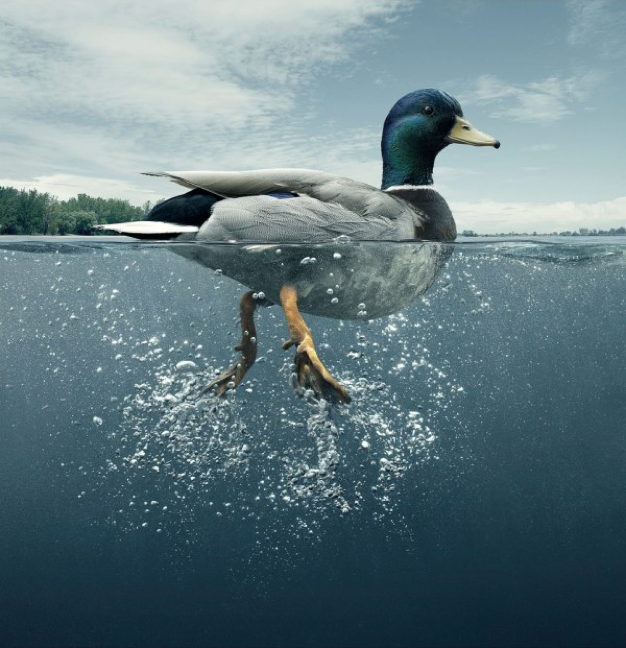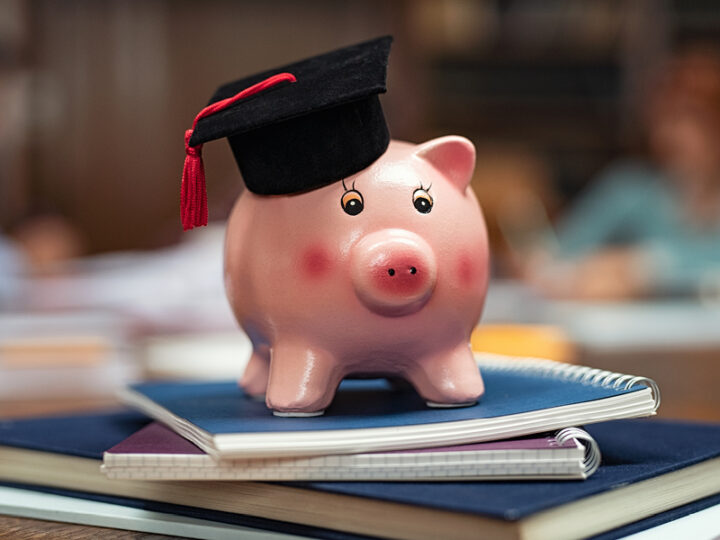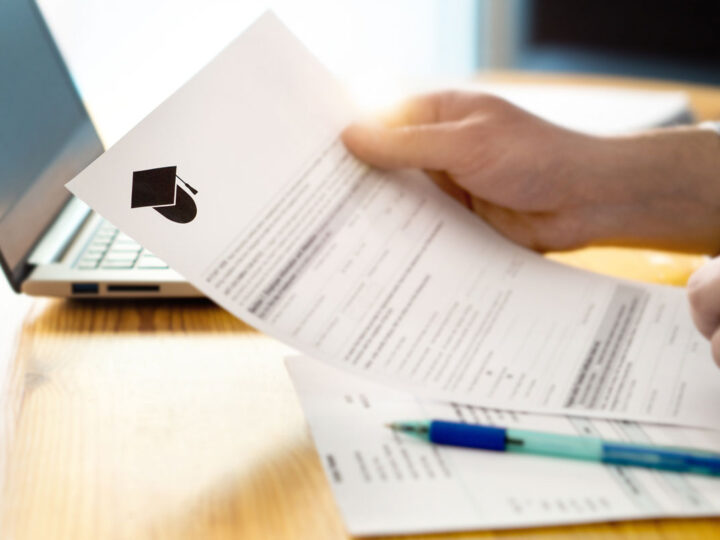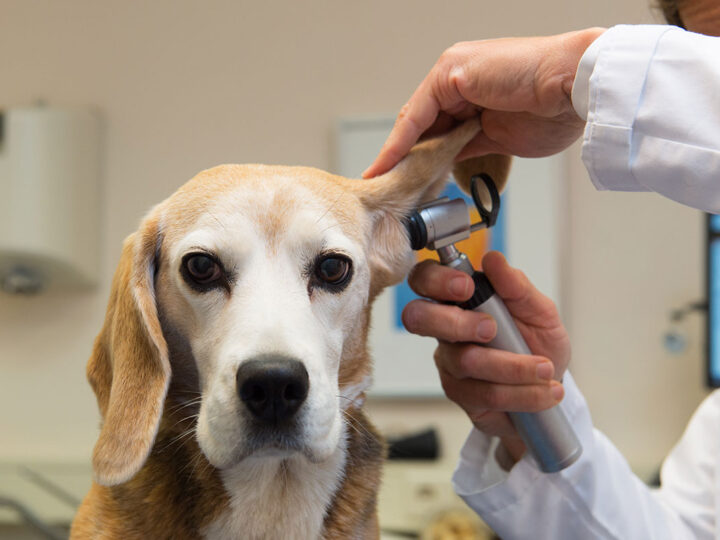
Inflexibility in Self-Care
Written by: Steven Lucero, Ph.D.
Veterinary students often feel like ducks swimming through the placid calm of an undisturbed lake. From the beach, while you observe a duck swimming through water, what do you notice? The duck appears to slice through the water with unobstructed ease. Now, throw on your scuba gear and dive in. What do you notice looking up at the duck from underneath?
Its webbed feet are paddling furiously. What does it mean when you catch yourself desperately paddling to make headway? Do you notice the exterior experience of your colleagues who seem to effortlessly cut through the rippling waves of veterinary school? When you socialize with new people or take a break from systemic pathology, do you feel guilty about enjoying a few hours away from studying?
That overwhelming sense of paddling without getting anywhere is often the result of inflexibility. Inflexibility is willfully forcing myself to study, because the anxiety is too overwhelming if I’m not 100% dedicated to studying every free moment of the day. The typical student retains a robust amount of information from the first hour of a study session. As the hours of study accumulate, you hit a point of diminishing returns. The amount of information encoded and able to be recalled later flatlines and may even decline. The inflexible thought becomes, “I hear everyone else talking about how much they’re studying. I should study as much as they say they are.”
All too easily, I can fall into the self-punishing spiral of trying to outstudy my peers while getting less sleep than everyone else. I can only know my internal anxiety of endless paddling, while I can only observe my colleagues effortlessly sliding through veterinary school.
I propose a more flexible approach to wellness and self-care that engages our senses. Flexibility looks like regularly investing time and energy in the hobbies and activities that are valuable and meaningful, especially when I am stressed with school. Flexibility tastes like a meal with time set aside to not discuss any academic material and invest in one another’s interests, aspirations, and vulnerabilities. Flexibility smells like fresh air while taking my dog for a walk with a classmate or hiking and exploring nature. Flexibility feels like self-compassion when I inevitably make a mistake on something important to me, because if I’m not making mistakes in learning something new, I’m probably not actually growing. It’s so paradoxical to me that the times when we are most likely to give up our regularly scheduled exercise time, social activities, or other favored self-care habits are in the lead-up to tests and finals when we most need and most benefit from them.
Flexibility in self-care acknowledges that I can feel guilty about not studying for a test next week and remain mindfully engaged in a game night with my colleagues. Saying “yes” to meaningful social interaction does not mean I am saying “no” to my identity as a hard-working and passionate veterinary student. It means I am saying “yes” to being a more effective student when I next approach a study group. The initial feelings of guilt or anxiety that arise when I decide to allocate time toward exercise or going on a trip with friends are nothing more than information, data that reminds me veterinary medicine is an important value of mine.
Emotions come and go like waves in the ocean. While I can’t make a certain emotion stop or always be present, I can practice accepting that specific emotion, calmly recognizing that it will pass in due time. I can control my behaviors. I can invest time and energy in the service of other values as well: The relationship that has developed as a result of spending time with a person who is meaningful to me or the health of my body arising from playing a weekly intramural sport.
The AVMA has already begun to take important steps toward creating resources designed to help you take a more flexible approach to self-care, recognizing that veterinary students cannot be effective change agents for their clients and patients unless they have first addressed their own self-care needs. These resources highlight that self-care looks very different for different people, and there are also some things we can all be approaching more flexibly.
First, research is clear that getting enough sleep helps in the consolidation of memory. Sacrificing sleep for a few extra hours of studying may be counterproductive to learning material. Secondly, isn’t it funny that what many adults call “working out” is what we used to call “play” as children? What would it look like to knock on one of your colleagues’ doors to ask if they could come out and play? Finally, did any of you end up in this field without a deep love and appreciation for animals? Investing time at the dog park may be just as helpful for you as it is for your pet.
If you have already found yourself sacrificing self-care for studying, you may have to be purposeful about scheduling time for flexible self-care. As you maintain a consistent balance of work and play, you won’t know any less material on your tests, and you won’t be a less effective veterinary student. You may end up using your study time more efficiently. Investment in your valued hobbies, relationships, and other self-care habits may help you be more accepting of feverishly paddling through veterinary school, knowing that you can still exude a Zen-like calm on the surface. While you internally feel you are frantically paddling to stay afloat, to everyone else, you are the picture of serenity, placidly slicing through the water.






